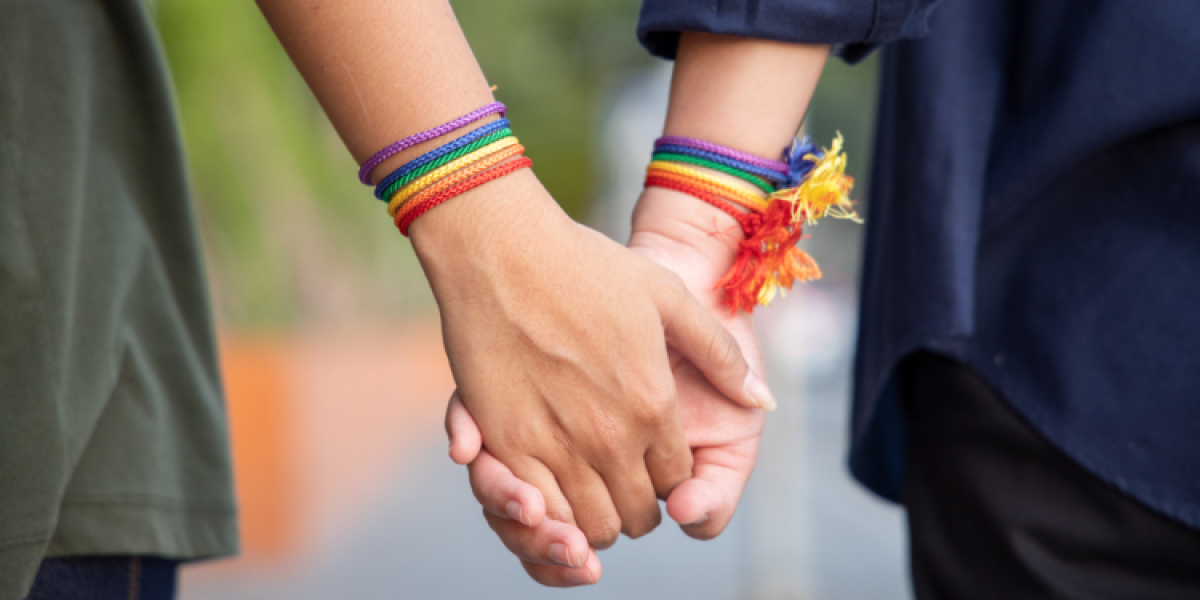
Your sexual orientation can be a key factor in your international relocation plans, even if you haven't realised it yet. While many countries worldwide have made significant progress in recent years regarding LGBTQ rights, including the legalisation of same-sex marriage, in others, LGBTQ issues are still taboo.
According to several surveys, most of the LGBTQ-friendly countries are found in Western Europe, North America and Oceania. In fact, June has been designated Pride Month in the United States and in several other countries. In normal times, June is marked by celebrations, such as LGBTQ parades, marches, etc. For example, Germany, Norway, the Netherlands, Belgium, Denmark, and Sweden are continuously fighting for the improvement of LGBT rights, including legalising same-sex marriage, which is also accepted in several Latin American countries, such as Brazil and Argentina.
But what if you're not considering any of these countries, whether you're single or an LGBTQ couple?
Do LGBTQ rights exist in the Middle East?
The Middle East is world-famous for its strict anti-LGBTQ laws. In some countries, such as Saudi Arabia, which is governed by Sharia law, homosexuality is punishable by death. In the past, according to international media, men and women engaged in such activities were condemned to 100 lashes. Others were even banned from Saudi Arabia for a year.
The United Arab Emirates currently looks like the ideal expat destination with its many benefits. But can LGBTQ expats also enjoy the same benefits? While the quality of life is great and the living standards are high, the law is very strict for the LGBTQ community, unfortunately. In November 2020, the country announced that unmarried couples would now be allowed to live under the same roof. However, no mention was made for same-sex couples. Besides, if a man is caught wearing female clothes in public, he is liable to a fine of up to 10,000 dirhams and one year of prison.
Yemen is also very hostile to same-sex couples. While LQBTQ women risk 100 lashes and a prison sentence, married men who indulge in homosexual activities are stoned to death! But that's hardly surprising in a Muslim, conservative country like Yemen. In Oman, LGBTQ movements are simply banned. If a man or a woman is caught imitating a person of the opposite sex, they risk 3 years in prison! So don't even imagine what can happen if you ever demonstrate affection in public as an LGBTQ expat couple.
As the FIFA World Cup 2022 is coming soon, there were discussions in Qatar regarding a temporary suspension of anti-LGBT laws to boost the tourism industry. But this proposal was rejected by the Qatari government. According to Sharia law, members of the LGBTQ community risk flogging, 3 years in prison, or even the death penalty.
LGBTQ is quite widespread in Asia, but with limits
Thailand is cited as being the most “gay-friendly” country in Asia besides Vietnam, India, Japan, the Philippines, and even Taiwan, where LGBTQ has never been illegal. Unfortunately, LGBTQ rights are quite limited in Asia. Malaysia, for example, is a Muslim country that also complies with Sharia law. In fact, proposals were even made in 2019 for the strengthening of anti-LGBTQ laws. Currently, homosexuality in Malaysia is punishable by fines and lashes and 20 years in prison! In Myanmar, homosexuality is defined by law as “carnal relationships that are against the order of nature”. So whether you intend to visit or settle in this country, keep in mind that the LGBTQ community is often mistreated or arbitrarily arrested.
LGBTQ communities in other parts of the world
Africa is also home to many Muslim countries, such as Egypt, Morocco, as well as Nigeria. According to Sharia law in Nigeria, a person who commits a homosexual act or is simply homosexual risks 14 years in prison and a death penalty. This is why, according to a Nigerian who wishes to remain anonymous, people don't even dare to speak about LGBTQ issues. “We have to be very careful with anything we say or do. We have to watch our body language if we don't people to brag and denounce us. Unfortunately, this is the mentality here and we have to accept it by being cautious", he says. In Malawi, homosexuality is punishable by 14 years of imprisonment for men and 5 years for women. Besides, men who have long hair that reaches their chin risk 6 months in prison!
If Morocco has always been your dream destination, make sure to seek all relevant information before moving. Even though the country is slightly more liberal, it's best to keep your sexual orientation to yourself. It's quite common to see men hugging each other in Morocco or making public display of affection, but avoid doing the same. You could be imprisoned for 6 months to 3 years. Also, keep in mind that the authorities have an eye on you, so avoid mentioning your sexual orientation on social media and dating apps. In Egypt, in recent years, the police have been creating fake accounts on social networks to track members of the LGBTQ community. Such acts are punishable by fines and 3 years of prison. It is also forbidden to be in possession of homosexual material.
Fortunately, in Algeria, tourists are not concerned by anti-LGBTQ laws. But if you intend to relocate there as an expat, you should be aware that it is even forbidden to dress like a person of the opposite sex. You won't go unnoticed and can even be criticised be victims of violence.
Did you know?
In Russia, homosexuality was considered a mental illness until it was removed from this list in 1999. However, same-sex marriage is still illegal in Russia.



















